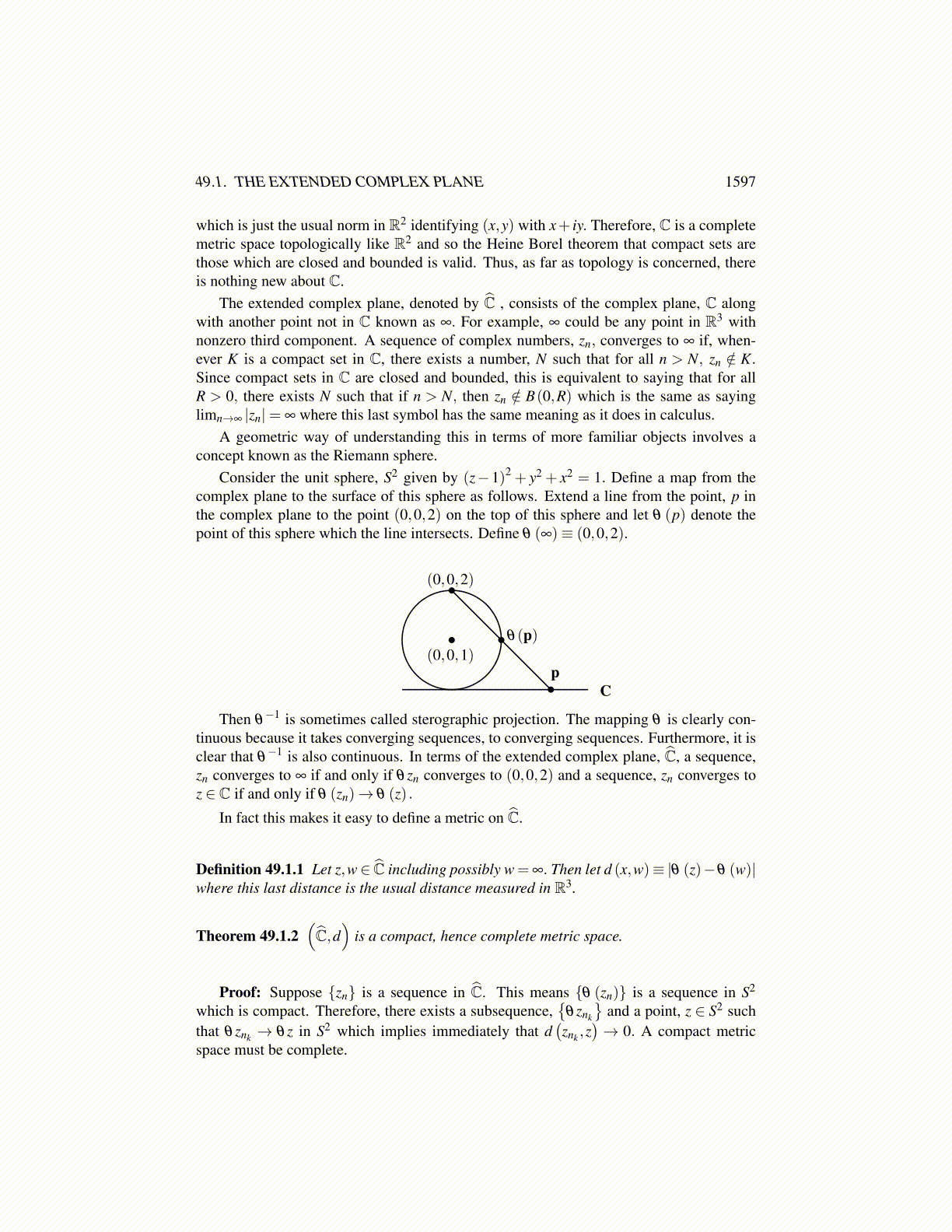
Chapter 49
The Complex NumbersThe reader is presumed familiar with the algebraic properties of complex numbers, includ-ing the operation of conjugation. Here a short review of the distance in C is presented.
The length of a complex number, referred to as the modulus of z and denoted by |z| isgiven by
|z| ≡(x2 + y2)1/2
= (zz)1/2 ,
Then C is a metric space with the distance between two complex numbers, z and w definedas
d (z,w)≡ |z−w| .
This metric on C is the same as the usual metric of R2. A sequence, zn→ z if and only ifxn→ x inR and yn→ y inRwhere z= x+ iy and zn = xn+ iyn. For example if zn =
nn+1 + i 1
n ,then zn→ 1+0i = 1.
Definition 49.0.1 A sequence of complex numbers, {zn} is a Cauchy sequence if for everyε > 0 there exists N such that n,m > N implies |zn− zm|< ε.
This is the usual definition of Cauchy sequence. There are no new ideas here.
Proposition 49.0.2 The complex numbers with the norm just mentioned forms a completenormed linear space.
Proof: Let {zn} be a Cauchy sequence of complex numbers with zn = xn + iyn. Then{xn} and {yn} are Cauchy sequences of real numbers and so they converge to real numbers,x and y respectively. Thus zn = xn+ iyn→ x+ iy. C is a linear space with the field of scalarsequal to C. It only remains to verify that | | satisfies the axioms of a norm which are:
|z+w| ≤ |z|+ |w|
|z| ≥ 0 for all z
|z|= 0 if and only if z = 0
|αz|= |α| |z| .
The only one of these axioms of a norm which is not completely obvious is the first one,the triangle inequality. Let z = x+ iy and w = u+ iv
|z+w|2 = (z+w)(z+w) = |z|2 + |w|2 +2Re(zw)
≤ |z|2 + |w|2 +2 |(zw)|= (|z|+ |w|)2
and this verifies the triangle inequality.
Definition 49.0.3 An infinite sum of complex numbers is defined as the limit of the sequenceof partial sums. Thus,
∞
∑k=1
ak ≡ limn→∞
n
∑k=1
ak.
1597